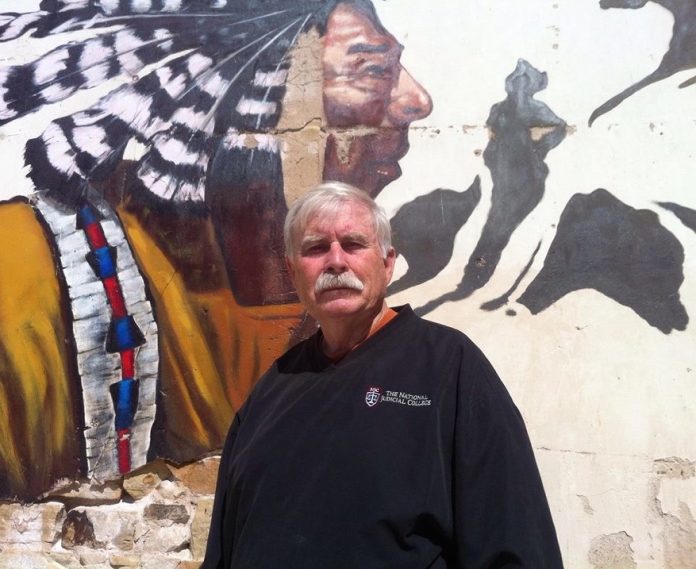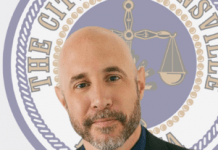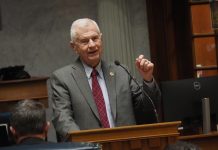GAVEL GAMUT
By Jim Redwine
www.jamesmredwine.com
(Week of 11 August 2025)
PRO BONO PUBLICO
For the public good. We rarely take note of how much many people do for free. We just accept, and even expect, such civic minded persons as clergy people, medical personnel, fire and rescue workers and numerous other generous citizens to furnish our society with essential services. Who supports the schools, the religious institutions, civic organizations and countless, often nameless, beneficial causes? We know innumerable important services must get rendered but they are often given without fanfare and without recognition. What we do know is our lives are made better by a whole lot of people who owe us nothing and receive just that.
One of the most thankless public service groups is attorneys who take on unpopular people or causes. John Adams set the bar for putting right above his and his family’s personal interest in 1770 when, as a prominent lawyer and leader of the Colonials’ cause against England, he represented the British soldiers involved in the Boston Massacre. A crowd of Colonial protesters was fired upon resulting in five Americans being killed and six more wounded, the most famous of whom was Black citizen, Crispus Attucks, who is often referred to as the first martyr of the American Revolution. Of the eight British soldiers involved, six were found not guilty and two were convicted by a jury of manslaughter, not the original charge of murder.
Both John Adams, who became our second president, and his wife Abigail understood the Colonial public would revile Adams for representing the British. In fact, Adams claimed he lost half of his law practice due to his courageous actions. But it was a matter of doing the right thing and establishing that a fair trial was more important than succumbing to a mob mentality.
As Attorney Atticus Finch stood for in Harper Lee’s novel, To Kill A Mockingbird, when he defended poor Black Tom Robinson, justice was more vital to our American democracy than an attorney’s comfort and popularity. When the power of the government comes down on the defenseless, attorneys are often called upon to forego ease and incur the slings and arrows of what might otherwise be governmental power and public opinion run amok. They become the thin, and often disliked, line between tyranny and due process.
I often reflect on what my brother told me was the main reason I should follow his service and enter the legal profession, “You can do more good for more people in law than anything else”. While these lessons of courage, self-sacrifice and altruism may seem unnecessary after so many instances of the harm done by the ravages wrought by the swollen tide of misguided public clamor, our legal profession today may need a reminder. In our current culture of universities, corporations, municipalities and vapid national media bowing to governmental threats and malicious actions, we need our lawyers to once again put duty before fear and courage before capitulation.
In a July 31, 2025 article published by Reuters, the alarm bell has been rung. In their Special Report: How Trump’s crackdown on law firms is undermining legal defenses for the vulnerable, authors Mike Spector, Brad Heath, Kristina Cooke, Joseph Tanfani and David Thomas point to some of America’s most elite law firms as abandoning their core principles under financial pressure from the Trump Administration.
As for me, I do not spend much time assigning blame to those who threaten and coerce. I do not expect altruistic or ethical behavior from them. I do call upon the attorneys to remain true to what lawyers from Adams to today have stood for, an America where when a person has nowhere else to go, an attorney will seek the right regardless of the cost to that attorney or his law firm. Such selfless actions may not be seen as heroic by a public that may generally agree with governmental power being abused against those who are unpopular. Attorneys should not take up legal arms seeking accolades. Their oaths call for them to choose the harder right simply because it is right. Duty often calls for sacrifice and often the old adage, “No good deed goes unpunished”, is the result.
However, if one’s only motivation to eschew the easier wrong is public acceptance, such attorneys might as well resign themselves to lives of comfort and self-contempt. Right for right’s sake in the face of corruption for corruption’s sake is the core principle of America’s legal conscience. The events of our time are once again calling for lawyers to remember why they became lawyers.
For more Gavel Gamut articles go to www.jamesmredwine.com





